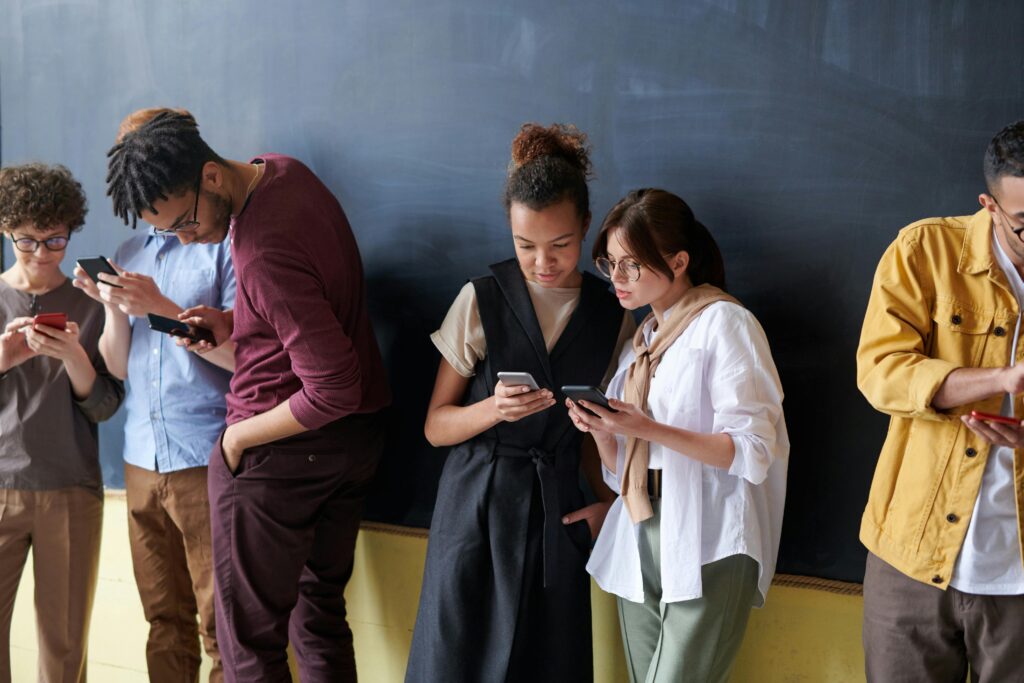POV: You’re sitting in sex ed class. Maybe today’s the day you finally learn how to do this whole dating thing.
But it never comes. Anatomy? Check. Condoms? Check. Birth control? Check. Consent? Check, check, check. All super important, but how are you supposed even to get there if you don’t know how to say, “Hey, I like you” without sounding like a weirdo?
The class is over. You feel stuck. Like you’re missing a secret rulebook that everyone else seems to have memorized. Maybe they were born with it? Maybe you’re just broken? Or maybe this class wasn’t created for someone like you. All you know is, you’re leaving with more questions than answers. Again.
Now imagine if your struggle isn’t just about dating but also figuring out how to navigate romantic relationships when you’re neurodivergent. “Exploring the Experience of Romantic Relationships and Sexuality Education in Neurodivergent and Neurotypcial Young Individuals” explores how sex education programs in the UK are leaving these teens—especially those with Autism Spectrum Disorder (ASD) and Attention-Deficit/Hyperactivity Disorder (ADHD)—feeling even more lost than their neurotypical peers.
Neurodivergent Dating Challenges
ASD and ADHD are neurodevelopmental disorders. They can make social skills, like forming romantic relationships, more challenging. ASD affects how people communicate and interact, while ADHD impacts attention and impulsivity. When these two conditions overlap, the challenges get even tougher.
Young people with these disorders struggle more with dating than their neurotypical peers. They often face confusion about social cues and boundaries. According to recent research, they experience difficulties like “a lack of awareness of how to establish romantic relationships” and sometimes even inappropriate behavior, such as “touching another person without their consent.” For young adults with ADHD, it can translate to being more vulnerable to “developing a sexually transmitted disease or becoming accidentally pregnant.”
Without proper guidance, young folks living with ASD or ADHD face extra barriers to having healthy, satisfying romantic couplings.

The Interviews
Doctors Magdalena Smusz, Christopher Birkbeck, Amy Bidgood, and Clare S. Allely interviewed 34 young people, aged 18-25, split between neurotypical and neurodivergent participants from the UK. To be eligible, they needed to have either ASD, ADHD, or both, or be neurotypical.
They answered questions like, “How useful is/was the relationship and sex education you received in building romantic relationships?” The interviews were done via a virtual video call. The research team let the participants choose to see the questions ahead of time to reduce anxiety. After the interviews, they used a thematic analysis to identify any patterns or themes within the responses.
Well, this is Awkward
From awkward sex ed classes to the reality of navigating romance, the doctors identified six themes that show the struggles young people face—especially those with ASD and/or ADHD. What’s really missing from our conversations about dating and intimacy?
According to the participants, sexuality is still treated as “a very uncomfortable topic” that society loves to avoid. The result? A lack of awareness and access to sexual health support. One person shared, “There’s a lot of stigma around sexual health clinics,” making it harder for young folks to find help. Even dating seems wrapped in societal pressure. Some feel like they’re expected to jump into relationships because “it’s what you’re supposed to do.” As for being single? It’s often seen as “not normal.”
School, Parents, and Porn
Sex ed in school–was it awkward for you? You’re not alone.
Students describe their lessons as embarrassing, both for themselves and their teachers. One participant noted, “My teachers were really uncomfortable about discussing it.” Instead of serious discussions, many classes felt like a joke. Another person even admitted, “It’s more of a joke week.” Not surprisingly, the material was often superficial. No real talk about relationships or navigating feelings. And LGBTQ+ topics were ignored. Instead of being helpful, the students left school with zero real guidance on healthy, fulfilling relationships.
Where are the parents in these conversations? For most of the young adults, their parents didn’t cover much more than the basics, like periods and contraception. Some avoided the topic altogether. A participant, brought up in a strict religious family, said “I had to like go out there and figure it out.” When parents did attempt ‘the sex talk’, many weren’t great at it. It turns out that the lack of real talk at home leaves young adults without the tools they need to manage romantic relationships.
So, if sex ed at school and home is a struggle, where does a young person turn? Yep, you guessed it—porn. “Children learn so much more from pornography than they do from any kind of institution,” revealed one participant. But let’s be real: porn isn’t a guide for understanding healthy sex and relationships—it’s entertainment. It can set “very unrealistic expectations.” Still, with no other education in place, it becomes the go-to source.

Romance & The Darkside of Relationships
Ever felt like dating is one big confusing mess? Big surprise—most young adults are simply winging it.
Casual relationships are the norm, with one interviewee saying, “I’ve never been official with anyone.” For neurodivergent folks, it’s even harder. Many struggle with reading social cues or understanding what’s appropriate in a relationship. One even admitted unintentionally stalking an ex because they didn’t know how to act. It’s clear without proper relationship education, people are left in trial-and-error mode, which can lead to some messy–and sometimes harmful–experiences.
Then, there’s the darkside of relationships—abuse. One participant shared that their first relationship was “very sexually coercive” and the second was “emotionally abusive.” For neurodivergents, it’s more difficult to spot the abuse, especially when they haven’t been taught what healthy boundaries actually look like. The lack of open conversation about abuse makes it tough for victims to come forward. As one noted, “There’s a big stigma around coming forward about rape and abuse.”
Limitations & Future Research
The interviews were done one-on-one, which may have caused anxiety for some participants. And they were all part of an online sampling, limiting access to those without internet. For future studies, researchers suggest expanding the participant pool to include younger people and folks with diverse ethnic backgrounds. They also recommend more research on the unique experiences of those with both ASD and ADHD.

Real-Life Solutions
Expanding the curriculum to include topics like sexual pleasure, LGBTQ+ sexuality, and neurodivergence is a must. Right now, sex ed—when there is sex ed—is too biology-focused. And topics like relationships, consent, and diverse sexual orientations are mostly ignored.
We need to teach appropriate vs. inappropriate behavior. An easy way to do this is by adding “social stories” that explain sexual behaviors. Then follow those with a discussion between students and teachers or parents. We must teach young adults to handle rejection and recognize not-so-great relationship styles or behaviors. Providing this kind of emotional guidance could help them prevent harmful relationship patterns.
And there should be more interactive and tech-based sex ed lessons. Neurodivergent—and many folks of all ages—need teaching methods that feel more engaging and relatable. Not those outdated videos or slideshows currently carried by curriculums. Think less PowerPoint and more interactive apps and tools that’ll make learning fun, informative, and approachable.
Lastly, we can’t avoid talking about abuse. Neurodivergent participants felt more vulnerable to abusive situations. They lacked the know-how to recognize the signs. Schools and parents should focus on helping them understand what abuse looks like in romantic couplings and build trusting environments where they feel comfortable talking about these sensitive topics.
You’re not born knowing how to appropriately ask someone out or say, ‘I like you.’ If you’re walking out of a sexuality class with more questions than answers, did we actually cover what people need?



